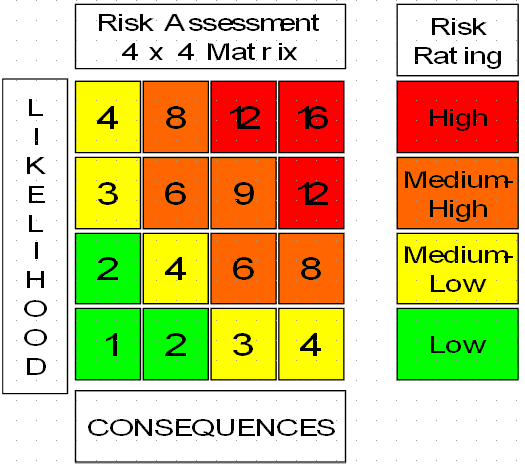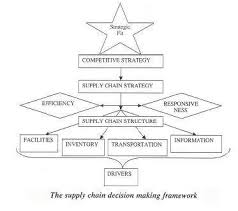
Both companies have agreed to merge their waste management operations. The combined company will expect to maintain strong balance sheets and high-quality credit ratings. The boards of directors from both companies unanimously approved the merger. The transaction is expected close in 2020's first quarter.
Cost of the acquisition
The acquisition of Advanced Disposal Services by Waste Management has raised concerns about the potential costs. The companies are aiming to reduce the costs of waste management and improve customer service. The purchase price has been set at $4.6 million. The acquisition will also help to align the financial goals of both companies and their growth strategy. These goals include high returns for invested capital, growth of earnings per share and margins, as well a commitment towards outstanding customer service.
Advanced Disposal, based in Ponte Vedra, Florida, provides non-hazardous solid waste collection, transfer and recycling services to businesses and municipalities across 16 states. According to Wall Street Journal reports, the company has a net deficit of $1.9 million. The transaction is expected in the first half of 2020.
Value of the transaction
Advanced Disposal is a waste management company that specializes in non-hazardous solid waste collection and disposal. It has roughly 6,000 employees and is present in 16 states. It operates 73 transfer stations and 41 landfills. 22 MRFs are owned or operated by the company. Its customers are comprised of businesses, municipalities, and residential customers.

Advanced Disposal has approximately $1.8 billion in net debt, with $345 million in annual revenue. The company has been able to increase its profitability by providing superior customer service and expanding its customer base. The company has also been able to lower its cost of capital. This has resulted is a decrease in the company's cost of capital.
Competition impact of the transaction
There are several things you need to think about when purchasing advanced disposition. The first is whether the acquisition would increase competition. Advanced Disposal, Waste Management, and Advanced Disposal have many landfills in Atlanta. Both companies are expanding at an accelerated rate. Both companies own disposal sites throughout the Birmingham region, and sources indicate they are planning to expand. Further, Advanced Dumpster Rental picked up Three Corners Regional Landfill in Atlanta in 2018, and it has three more in and around the Birmingham market.
Both companies expressed interest in buying one another. However, the situation remains fluid. Multiple sources say that the transaction is likely to involve two or more buyers. Some sources suggested Waste Connections being the most likely candidate. Although the company has not yet responded to our requests for comment, it has been reported that they have been involved in discussions with several other companies. Republic Services and other companies have also indicated an interest in the acquisition.
The transaction's impact on the debt levels
Waste Management, which is a major provider for waste services, acquired Advanced Disposal. The two companies will share their customer base, allowing Waste Management to provide a comprehensive range of waste management solutions. According to the Companies' filings, Advanced Disposal expects to generate $1.56 billion in revenues and $427 million in adjusted EBITDA in 2018. The company services more than 3,000,000 customers in 16 states of the eastern half. It manages 94 collection services and 73 transfers stations. In addition, it has 22 recycling facilities.
The acquisition will bring significant synergies to the combined company. The combined companies anticipate generating approximately $100,000,000 in annual capital expenditure and cost-saving synergies. Additionally, the transaction is expected to improve Waste Management's cash flow generation and balance sheet.

Impact on debt to equity
Advanced Disposal, after the market closes on Tuesday April 30, will announce its first quarter 2019 financial results. The company will not hold a conference phone call on Wednesday May 1st, nor will it be participating in the Macquarie Business Services Conference in Boston on May 2. Both boards have approved the acquisition. Both boards of directors approved the deal. It is expected that the deal will close in 2020's first quarter.
Waste Management is acquiring Advanced Disposal in order to expand its waste disposal services. The company expects to create approximately $100 million worth of cost synergies each year, which aligns with their business model. The company hopes to improve its profitability through the acquisition.
FAQ
What are the five management steps?
Planning, execution, monitoring and review are the five stages of any business.
Setting goals for the future requires planning. Planning involves defining your goals and how to get there.
Execution takes place when you actually implement the plans. Everyone involved must follow them.
Monitoring allows you to monitor your progress towards achieving your goals. Monitoring should include regular reviews of performance against goals and budgets.
Each year, reviews are held at the end. They allow for an assessment of whether all went well throughout the year. If not there are changes that can be made to improve the performance next year.
After the annual review is complete, evaluations are conducted. It helps to identify what went well and what didn’t. It also gives feedback on how well people did.
What's the difference between a program and a project?
A program is permanent, whereas a project is temporary.
Projects usually have a goal and a deadline.
It is often carried out by a team of people who report back to someone else.
A program usually has a set of goals and objectives.
It is often done by one person.
What is TQM?
When manufacturing companies realized that price was not enough to compete, the industrial revolution brought about the quality movement. They had to improve efficiency and quality if they were to remain competitive.
Management realized the need to improve and created Total Quality Management, which focused on improving all aspects within an organization's performance. It included continual improvement processes, employee involvement, customer satisfaction, and customer satisfaction.
Statistics
- UpCounsel accepts only the top 5 percent of lawyers on its site. (upcounsel.com)
- The profession is expected to grow 7% by 2028, a bit faster than the national average. (wgu.edu)
- Your choice in Step 5 may very likely be the same or similar to the alternative you placed at the top of your list at the end of Step 4. (umassd.edu)
- This field is expected to grow about 7% by 2028, a bit faster than the national average for job growth. (wgu.edu)
- As of 2020, personal bankers or tellers make an average of $32,620 per year, according to the BLS. (wgu.edu)
External Links
How To
How do you implement Quality Management Plans (QMPs)?
QMP (Quality Management Plan) is a system to improve products and services by implementing continuous improvement. It is about how to continually measure, analyze, control, improve, and maintain customer satisfaction.
The QMP is a standard method used to ensure good business performance. The QMP aims to improve the process of production, service delivery, and customer relationship. QMPs should address all three dimensions: Products, Services, and processes. A "Process" QMP is one that only includes one aspect. The QMP that focuses on a Product/Service is called a "Product." QMP. QMP stands for Customer Relationships.
Scope, Strategy and the Implementation of a QMP are the two major elements. They are defined as follows:
Scope: This determines the scope and duration of the QMP. For example, if your organization wants to implement a QMP for six months, this scope will define the activities performed during the first six months.
Strategy: These are the steps taken in order to reach the goals listed in the scope.
A typical QMP has five phases: Planning (Design, Development), Implementation (Implementation), and Maintenance. Each phase is explained below:
Planning: In this stage, the objectives of the QMP are identified and prioritized. To understand the expectations and requirements of all stakeholders, the project is consulted. After identifying the objectives, priorities and stakeholder involvement, it's time to develop the strategy for achieving the goals.
Design: This stage is where the design team creates the vision, mission and strategies necessary for successful implementation of QMP. These strategies are executed by creating detailed plans.
Development: The development team is responsible for building the resources and capabilities necessary to implement the QMP effectively.
Implementation: This involves the actual implementation of the QMP using the planned strategies.
Maintenance: This is an ongoing procedure to keep the QMP in good condition over time.
Several additional items should be added to the QMP.
Participation by Stakeholders is essential for the QMP's continued success. They should be involved in planning, design, development and implementation of the QMP.
Project Initiation: It is essential to have a clear understanding about the problem and the solution before you can initiate a project. In other words, they must understand the motivation for initiating the project and the expectations of the outcome.
Time frame: It is crucial to know the time frame for the QMP. For a short time, you can start with the simple version of the QMP. For a long-term commitment you may need more complicated versions.
Cost Estimation: Cost estimation is another vital component of the QMP. Planning is not possible without knowing the amount of money you will spend. The QMP should be cost-estimated before it can begin.
QMPs are not just a written document. They should be a living document. It changes with the company. So, it should be reviewed periodically to make sure that it still meets the needs of the organization.